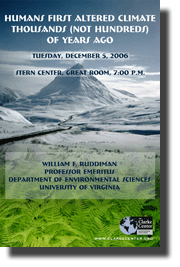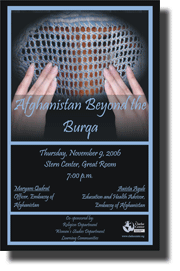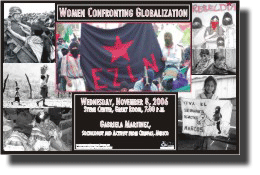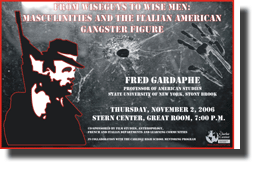Yolanda Lopez, political artist
The Virgin of Guadalupe on the Road to Aztlan
Wednesday, October 17, 2007
7:00 p.m. – Stern Center, Great Room
Artist-provocateur and activist, Yolanda Lopez, will discuss the trajectory of her work, including her famous “virgin of guadalupe” paintings, in the context of her experiences with the Chicano civil rights movement, feminism, and contemporary immigration debates. Co-sponsored by Latin American Studies, American Studies and sociology Department.
Issue in Context
The Virgin of Guadalupe is one of the most revered Roman Catholic symbols in Mexico. She is believed to be an apparition of the Virgin Mary. From the time of the Mexican War of Independence, the Virgin of Guadalupe has been assumed as an icon of Mexican culture. Each year on December 12, millions of Mexicans and Mexican Americans celebrate The Queen of Mexico with dancing, songs, fireworks, and prayers.
According to the United States Census Bureau, in 2000 there were more than 20 million Mexican Americans living in the United States. Although they represent a large portion of the U.S. population, Chicanos, or Mexican-Americans, still often find themselves marginalized and discriminated against in mainstream society. The Chicano movement addresses negative representations of Mexican-Americans. Activists in the Chicano movement have worked Read more


















